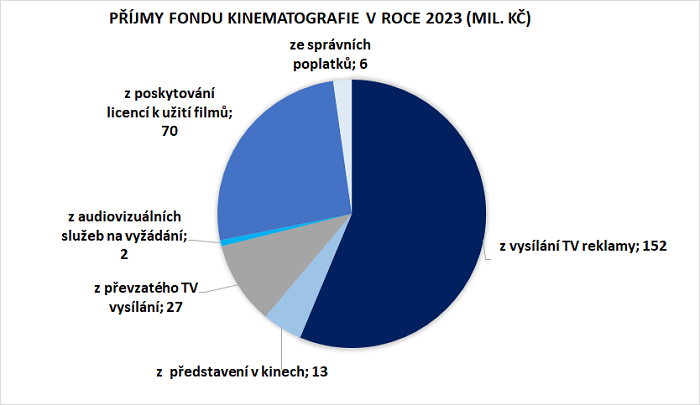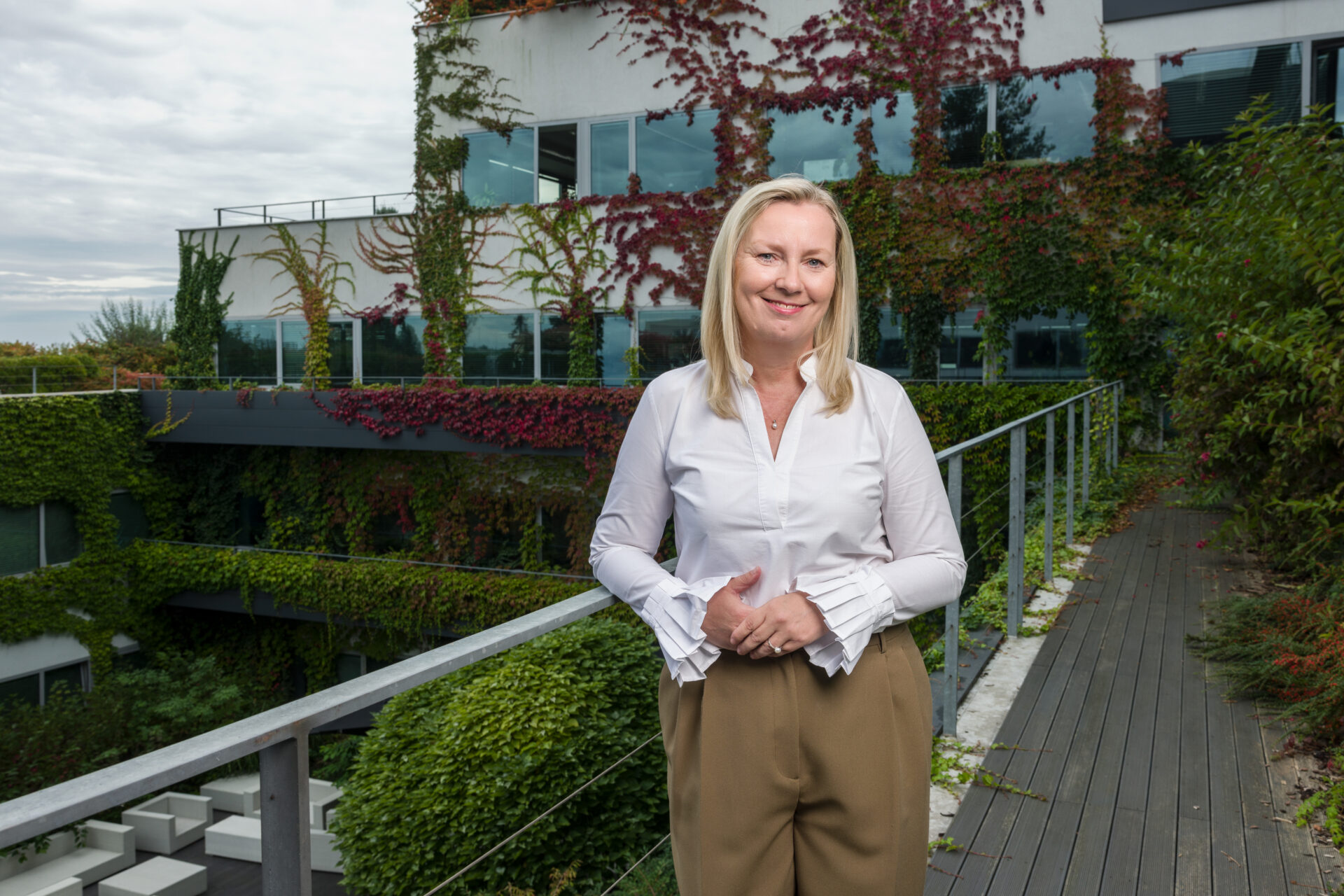AKTV: NETFLIX, HBO AND OTHERS SHOULD PAY INTO THE AUDIOVISUAL FUND
The Association of Commercial Television (AKTV) wants foreign platforms like Netflix, HBO and Disney+ to contribute to the Audiovisual Support Fund in the same way as Czech services.
The domestic professional Association of Commercial Television (AKTV), which brings together the main commercial broadcasters on the Czech market, believes that the forthcoming amendment to the Audiovisual Act (Act 496/2012 Coll. on Audiovisual Works and Support for Cinematography) should level the market playing field and oblige international video-on-demand (VOD) operators to contribute to the Audiovisual Support Fund. This obligation currently applies only to domestic audiovisual on-demand service operators. "Although foreign platforms draw incentives and film here, they do not participate in the audiovisual support system. We want this to change," said in an interview the president of AKTV, Klára Brachtlová, who is also the Chief External Affairs of the media group CME, the parent company of TV Nova.
Let's start with your new role at AKTV, where you took on the role of president this year. In this context, you said that your priorities include the protection of copyright content and the involvement of commercial TV in the preparation of the amendment to the law on audiovisual. Is this still the case, or have any other priorities been added?
The short-term priority for us this year is definitely the transformation of the Cinematography Fund, while the fight against internet piracy is a key priority and an area that AKTV has been working on for a long time. So that has not changed and we expect intensive work and discussion. In my new role at AKTV, I intend to build on the work of my predecessors. AKTV celebrated its sixth anniversary this spring and in that time has become a relevant and respected association. What is new is that we will gradually want to expand our activities towards the wider public, whereas so far we have focused mainly on the professional public. One example is the educational content on our website on the topic of Internet piracy.
Let's take a closer look at the two priorities you have set out. Let's start with the amendment to the Audiovisual Act, which should include the transformation of the existing State Cinematography Fund into an Audiovisual Fund. At what stage are the preparations for the amendment of the law?
Firstly, it should be stressed that the amendment of the law is necessary. The Czech audiovisual industry now operates under legislation that is more than a decade old and in no way reflects what has happened on the market. I am referring primarily to the dynamic digitalisation of the media and the entry of foreign video platforms (VOD) into our market. Although the need for new legislation has been discussed for more than two years, the process of preparation is still at an early stage and has only been intensified since January this year. We shall see how quickly the preparations progress. According to the ambitious plan of the Ministry of Culture, the amendment should be ready by the middle of this year.
Regardless of the timing of the preparations, what do you consider essential for the amendment to deliver from the perspective of commercial broadcasters?
For us, it is absolutely essential that the amendment levels the playing field between foreign VOD platforms such as Netflix, HBO Max or Disney+ and domestic VOD platforms, but at the same time does not upset the delicate balance that currently exists in the market. At the moment, the obligation to pay fees to the existing Cinematography Fund applies only to Czech entities, i.e. Voyo and now also to the Prima+ service. Domestic audiovisual media service providers pay 0.5% of their revenues annually. Although foreign platforms receive incentives and film here, they do not participate in the audiovisual support system. We want this to change.
Do you have a more concrete idea of how much multinational providers should contribute to the fund?
We believe that it would be enough to unify the conditions for domestic and foreign platforms. Domestic VOD platforms contribute 0.5% of their annual revenues, which should also apply to foreign ones. Many European countries have solved this in this way. Thus, it would be sufficient to add to the law in the relevant section that the 0.5% fee also applies to international providers. I do not think it is necessary to increase the percentage paid in support. Just by getting more entities involved in support, the levies would be multiplied. Moreover, the VOD market in general is growing rapidly, further increasing the amount of money paid in. In discussions at the Ministry of Culture, there have been proposals for a 2% levy, which we do not agree with. This is a leapfrog increase, and we do not like it. There is also consideration of introducing into the levy a mandatory obligation for foreign platforms to reinvest part of their revenues in the Czech Republic in the form of direct investment in Czech content.
This form of reinvestment is supported by Czech producers. How do commercial TV players feel about it?
I have been working in commercial entities all my life and therefore have a strong attitude towards such a proposal. I very much respect the conditions of the free market, which is why I don't think it's a good idea for the state to interfere in any way with how a commercial entity should handle its profits. I consider that to be the wrong way to go. We know that the possible reinvestment requirement is based on a recommendation from the European Union, but it is not the duty of Member States to introduce it.
TV Nova's parent company, CME, and Prima, which launched Prima+ this year, all agree that they are investing the most in original local production in their history. By how much has the introduction of VOD platforms by these entities increased the cost of content production?
If I simplify it, it will be multiples of the investments made in previous years. On Voyo Original alone, it's hundreds of millions of crowns a year extra that are being put into premium Czech productions.
In your opinion, what else should the amendment contain?
Part of the changes to the law would include extending support from cinema to the entire audiovisual industry, and therefore, in addition to cinema, to so-called small screens, which includes video platforms. This is therefore one area where the Fund's resources are being spent. The second part of the Fund is incentives. Until now, there have been certain obstacles that have prevented Czech entities from applying for incentives. For example, setting the minimum price per episode of a work at CZK 8 million. Commercial entities can produce such an episode more efficiently and for less money, and this setting alone is an obstacle to Czech entities reaching for incentives. One year it happened that three foreign projects used up almost the entire budget of the fund. This is also absurd given that foreign platforms do not pay taxes in this country and do not contribute to the fund.
The current law on cinema support also obliges you, as a commercial TV entity, to pay 2% of your annual advertising revenue to support Czech cinema. With Nova gradually launching the Voyo video platform and Prima launching the Prima+ online service this year, you must pay the levy twice as a single operating entity...
Yes, we pay for each service separately. So TV Nova pays as a linear TV broadcaster from advertising revenue and also as a provider of the Voyo pay VOD platform. The TV stations are the biggest payer and pay around CZK 150 million to the Fund every year. With the envisaged transformation into an Audiovisual Fund, support could be directed not only to works intended for cinemas, but also to projects for VOD platforms and TV.

Income of the Cinema Fund in 2023 (in millions CZK); Source: State Cinematography Fund budget for 2023
And is it possible that you could also qualify for support?
Hard to say. The concept of the fund will be approved by the board of directors, which will have 15 members, in which we as taxpayers can have one or two votes. The specific projects will then be decided by the boards. So we will have no influence on which projects the fund will support.
In terms of content protection activities, specifically the fight against pirated content, do you feel that it is moving for the better?
Of course, the Copyright Act gives us some protection, and we welcomed its recent amendment. But the problem is the actual enforcement, which unfortunately still does not work as the legislator intended. The courts do not have sufficient expertise, are slow and interpret the law in a very formalistic way. When a platform that distributes our content without a licence purposely identifies itself as a cloud storage platform and claims that it does not provide any content itself, the law is short on that. Although the situation is slowly moving, the overall situation in the Czech Republic is not ideal. The fight against online piracy is costing us a huge amount of time and resources and depriving not only us, but the entire creative and cultural industry of considerable resources. We have no doubt that this is a distortion of market conditions and unfair competition. Unless there is local political will and the courts follow the recommendations, not much will change. One possible solution would be to amend the aforementioned Audiovisual Act, which could come up with a solution to deal more conceptually and out of court with platforms with illegally shared content. Possible amendments to civil or criminal law could also help. Such repositories have already disappeared abroad, so we believe that the situation here will gradually improve. Moreover, the number of people paying for online content in our country is increasing as legal content becomes more accessible.
KLÁRA BRACHTLOVÁ: She has been President of AKTV since the beginning of 2023, and at the same time, she was appointed to the position of Chief External Affairs of CME, the parent company of TV Nova. She has worked in the finance section of the Nova Group since 2007. She held successive positions in reporting, financial planning and analysis, from 2012 she was Deputy CFO, from 2014 CFO, later Managing Director and from 2019 CEO of TV Nova.
Source: mediaguru.cz




